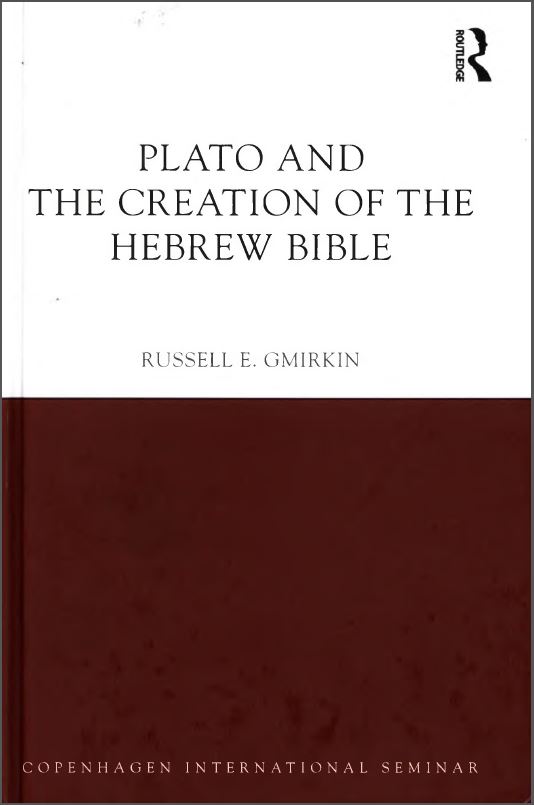 Russell Gmirkin continues to argue for much of the Old Testament having been written as late as around 270 BCE in his new book, Plato and the Creation of the Hebrew Bible. (He first made the argument in Berossus and Genesis, Manetho and Exodus, – link is to archived posts addressing various points in that work.) The book is priced for academic institutions so thankfully the publisher (Routledge) sent me a review copy that I am still reading. I have been relocating, renovating and slowly building up a new home office so progress has not been lightning fast, but small steps as opportunity arises are better than no steps so here’s the next instalment.
Russell Gmirkin continues to argue for much of the Old Testament having been written as late as around 270 BCE in his new book, Plato and the Creation of the Hebrew Bible. (He first made the argument in Berossus and Genesis, Manetho and Exodus, – link is to archived posts addressing various points in that work.) The book is priced for academic institutions so thankfully the publisher (Routledge) sent me a review copy that I am still reading. I have been relocating, renovating and slowly building up a new home office so progress has not been lightning fast, but small steps as opportunity arises are better than no steps so here’s the next instalment.
Biblical laws have been compared often enough with those from the ancient Levant and Mesopotamia and Gmirkin continues to make the same sorts of comparisons. But he also compares the biblical laws with ancient Greek laws and law collections and finds the similarities on the whole to be more striking than with those of the Near East. Not only laws themselves but also the narratives in which they are embedded resonate strongly with Greek literature. Gmirkin’s explanation is that the authors of the biblical texts were informed of legal ideals through Greek writings stored in the Great Library of Alexandria in the Hellenistic era.
Previous posts in this series:
- Plato and the Creation of the Hebrew Bible
- The Pentateuch’s Debt to Greek Laws and Constitutions — A New Look
- David, an Ideal Greek Hero — and other Military Matters in Ancient Israel
- Some preliminaries before resuming Gmirkin’s Plato and the Creation of the Hebrew Bible
- The Tribes of Israel modeled on the Athenian and Ideal Greek Tribes?
Before addressing specific laws Gmirkin sets out comparisons of biblical (especially Pentateuchal) legal institutions with those of Greece. The chapter is thick with endnotes and citations and many of these have kept my reading at a snail’s pace, but such slow reading is an enriching journey. I do find detailed discussions of legal, civil and religious institutions and offices becoming something of a blur, however, unless I take pen and paper and set out what I am reading in diagram form, and that’s what I have been doing especially in the second half of the second chapter. So for my own benefit and the interest of anyone else I set out here tables of data collated by Gmirkin in his comparisons. (Diagrams would be far too time-consuming.) Not all details or explanations are set out here by any means, but I hope I include enough to grasp the main ideas that are argued for the primacy of Greek influence on what we read in biblical narratives. I attempt to give enough detail for readers to form their own questions and assessments.
I am sure I am not the only one who has become so familiar with terms like “elders” and “all the people of Israel” and imagined them in their “exclusively biblical” context that it will come as something of a shock to make unfamiliar comparisons with Greek institutions and processes. Yet that’s what Gmirkin does and the results are by and large interesting. Here’s the first table; more to follow: Continue reading “The Bible’s Assemblies and Offices Based on Greek Institutions?”
